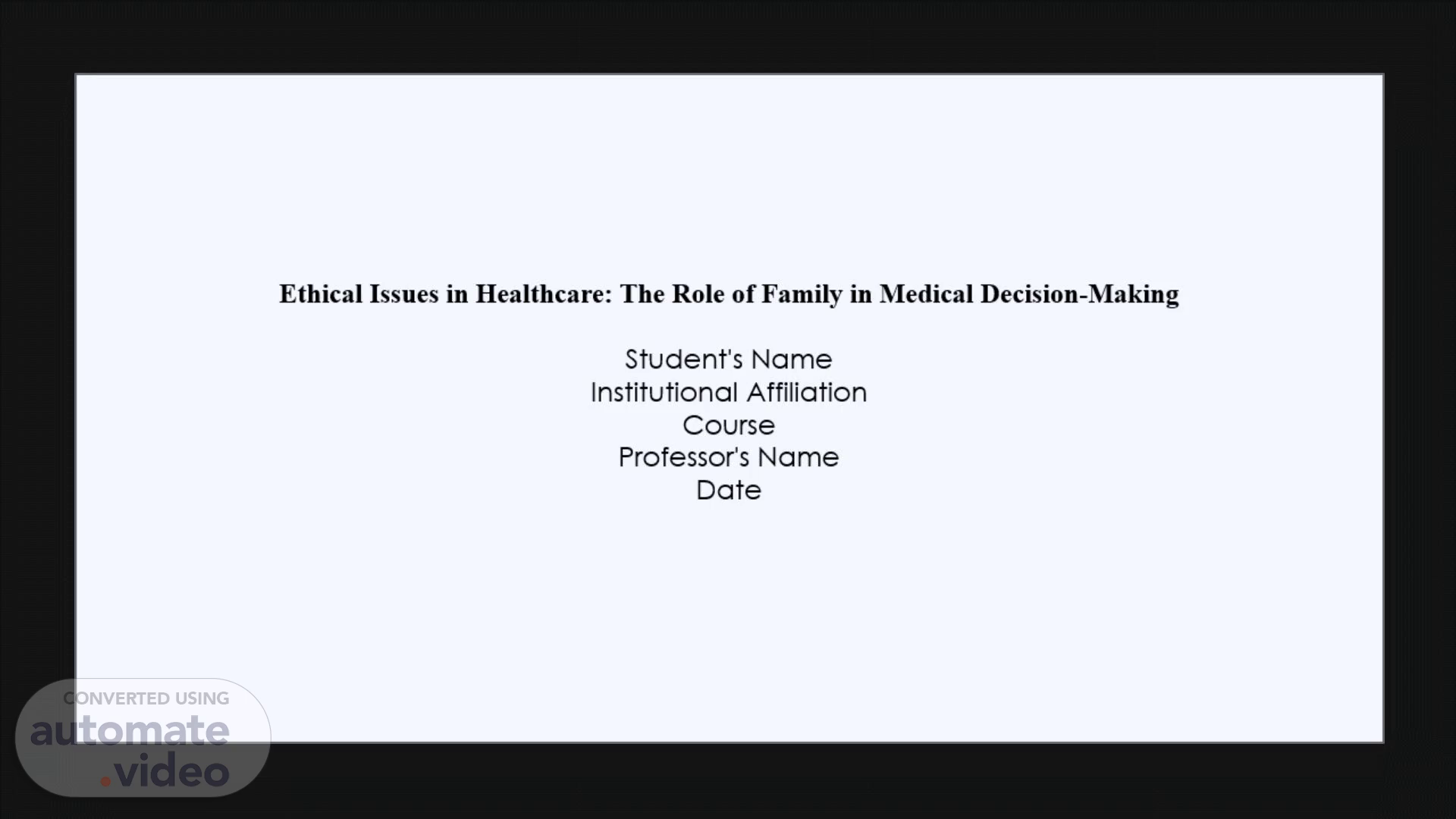
Ethical Issues in Healthcare: The Role of Family in Medical Decision-Making
Scene 1 (0s)
Ethical Issues in Healthcare: The Role of Family in Medical Decision-Making Student's Name Institutional Affiliation Course Professor's Name Date.
Scene 2 (9s)
Introduction. In healthcare, one ethical problem addresses the determination of the family role in medical decision-making. The frequency of family activities might eventually trigger questions about medical ethics. This presentation will give a brief outline of the ethical principles of autonomy, beneficence, non-maleficence, and justice that are relevant for family involvement in medical decision-making..
Scene 3 (27s)
Understanding the Ethical Issue. Should family members maintain a governing power when it comes to making critical care decisions about their loved one? Traditionally, patient's medical decisions were closely related to the paternalism model were doctors had the final decisions. On the other hand, the modern healthcare ethics are based on the concept of autonomy. The main parties involved in this ethical issue are patients, then patients' families, then healthcare providers and healthcare institution..
Scene 4 (48s)
Application of Ethical Principles. The ethical Principles in consideration are: • Autonomy • Beneficence • non-maleficence • Justice The participation of family members in medical authority matters should be informed by the ethical principles..
Scene 5 (1m 1s)
Consideration of Implications. Involving families in the medical decisions of their patients can be a great way to improve the whole process of patient support and decision-making itself. On the other hand, it can pose issues such as breaches of confidentiality or conflicts of interest. Striking a balance between all these interests is not a straightforward matter, and it requires a good awareness of each stakeholder’s point of view..
Scene 6 (1m 21s)
Summary and Conclusion. The active participation of family members in deciding upon medical treatments poses deep and complex ethical questions, among them the right to self-determination, beneficence, non-maleficence, and justice. Ethical decision-making protects patient autonomy, promotes beneficence, prevents harm, and ensures fairness. Prolonged dialogues and investigations remain crucial for overcoming ethical obstacles and developing a reliable system of healthcare decision-making within a family. By involving all the groups and connecting our actions with ethical principles, we can try to make choices that comply with the patients' best interests and respect the relationship between them and their families..
Scene 7 (1m 49s)
References. Aoki, Y., Yaju, Y., Utsumi, T., Sanyaolu, L., Storm, M., Takaesu, Y., ... & Edwards, A. G. (2022). Shared decision‐making interventions for people with mental health conditions. Cochrane Database of Systematic Reviews, (11). Peterson, A., Karlawish, J., & Largent, E. (2021). Supported decision making with people at the margins of autonomy. The American journal of bioethics, 21(11), 4-18. Pietilä, A. M., Nurmi, S. M., Halkoaho, A., & Kyngäs, H. (2020). Qualitative research: Ethical considerations. The application of content analysis in nursing science research, 49-69..